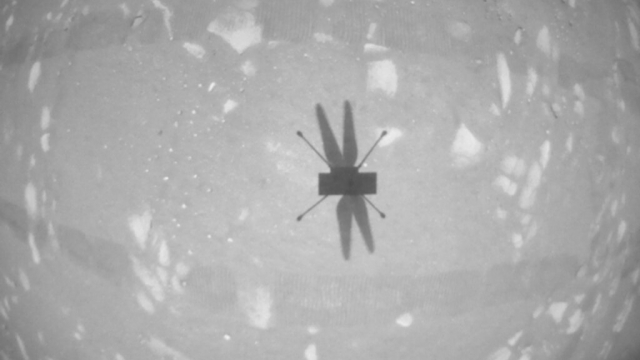NASA says its history-making Mars helicopter Ingenuity has flown for the last time: The space agency says its rotor blades were damaged as the craft was landing, and it won't fly again.
Thursday afternoon, NASA Administrator Sen. Bill Nelson made the announcement in a video posted to X.
"It is bittersweet that I must announce that Ingenuity, the little helicopter that could," said Nelson, "has now taken its last flight on Mars."
Ingenuity was planned as a technology demonstration as part of the Mars Perseverance rover mission that landed in February 2021. It was expected to fly just five times over thirty days. The helicopter greatly exceeded expectations, lasting for 72 flights over 1,000 Martian days and three Earth years.
SEE MORE: Future Missions Planned After Historic First Flight On Mars
In April 2021, Ingenuity became the first powered aircraft on another planet. Videos showed the helicopter zipping across the Martian landscape, scouting places for the rover to explore, and sending back pictures of its own shadow. It even recorded sound.
Ingenuity flew a total distance of 11 miles, 14 times farther than planned. It traveled just over 22 miles per hour and reached an altitude of 79 feet, proving it could operate in the extremely thin Martian atmosphere.
Last week as the helicopter was landing, NASA says Ingenuity lost contact with the rover.
When the link was back, Ingenuity sent a picture showing damage to at least one rotor blade. Thursday, NASA said the damage made any additional flights impossible.
"We are investigating the possibility that the blade struck the ground," Nelson said.
Ingenuity also carried aviation history. Attached to the underside of its solar panel is a piece of muslin material from the wing of the original Wright Brothers Flyer.
"While we knew this day was inevitable, it doesn't make it any easier," said NASA's Lori Glaze. "It's almost an understatement to say that it has surpassed expectations."
Trending stories at Scrippsnews.com



